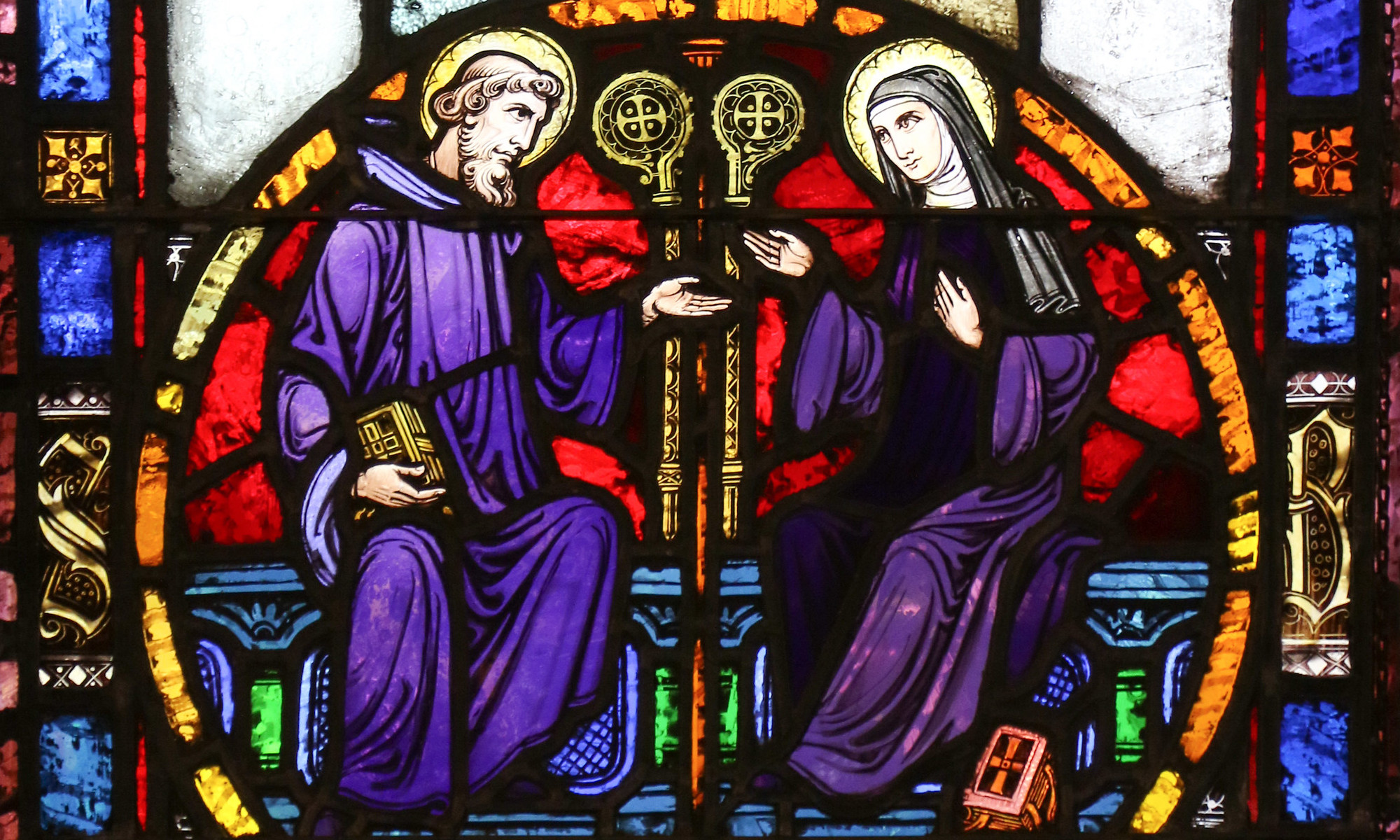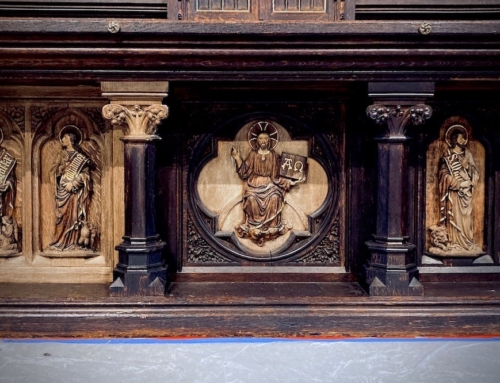Saint Scholastica, whose feast we commemorate today, was the twin sister of Saint Benedict, the father of Western monasticism. Scholastica followed her brother into monastic life, establishing a hermitage for women near Benedict’s monastery at Monte Cassino. According to St. Gregory the Great, the twins would meet once a year to discuss spiritual matters and to pray together. Scholastica cherished these rare meetings, and one year when Benedict was ready to depart, Scholastica turned to prayer, seeking divine help in order to prolong the meeting. Suddenly, a violent thunderstorm erupted, forcing Benedict to stay with his sister a little longer. This episode has made Scholastica a popular intercessor for seeking favorable weather.
The storm that arose, prolonging Benedict and Scholastica’s meeting, is a sign of God’s power and majesty. God, in his wisdom and power, holds dominion over all that he makes. The course of natural events unfolds according to his providence. We find sources of calm and refreshment in God’s creation, such as the “stream . . . welling up out of the earth,” described in the account of creation (Gen 2:6). Sometimes these events, however, can be fierce and destructive, such as the earthquake that recently destroyed the church built over the birthplace of Benedict and Scholastica. Nonetheless, the sun, moon, and planets, seas and rivers, storms and earthquakes, as well as the greatest mountain and the tiniest plant, all bear witness to the awesome power of our omnipotent creator.
As the culmination of God’s work of creation, we human beings also find ourselves governed by God’s providence. Just as God cares for the earth, and orders the seasons and the cosmos, so too does he order our lives according to his will. He calls us to listen to his Word, to trust his loving plan for our lives, and to follow him. However, our lives are not always filled with calm streams and peaceful meadows. Oftentimes we are faced with unwelcome storms and unsettling tremors. Is God punishing us in these struggles? Has he abandoned us when suffering ensues?
As Christians, we do not believe that God has forsaken us in times of sorrow. Rather, it is in such moments that we are called in a special way to trust in his loving providence for our lives. God, who orders all things in creation, also orders all things in our lives. Whether we experience joys or setbacks, God is using these things for some greater good. He permits temporary suffering in our lives in order to fulfill his ultimate plan for us, which is eternal life with him. We need look no further than Christ and his cross for consolation. He suffered a brutal crucifixion and death, but God raised him from the dead, making his death the source of our eternal salvation.
Through a severe storm at St. Scholastica’s hermitage, God allowed her to have more time with her brother, St. Benedict. A woman of virtue and holiness, Scholastica trusted in God’s providence. Her life witnesses to what it means to be fully devoted to God, relying on his help in good times, as well as in times of difficulty. Our model is Christ, who died and rose again. He is the Word of God, through whom all things are made and through whom God orders all of creation.
✠
Photo by Fr. Lawrence Lew, O.P. (used with permission)







